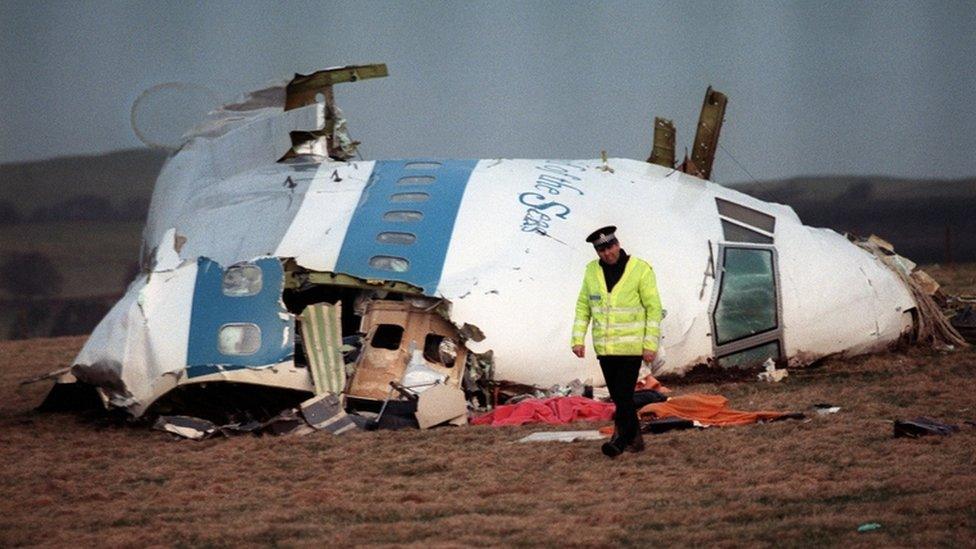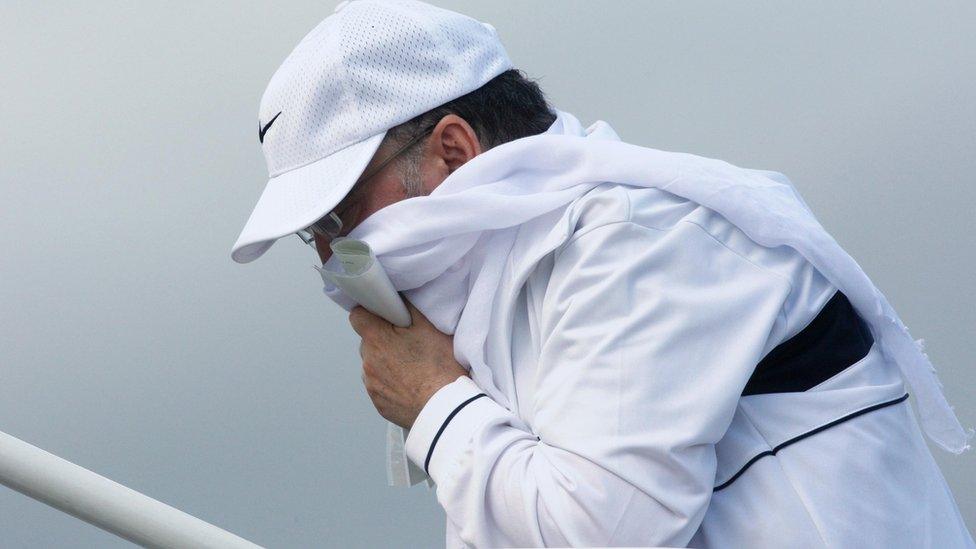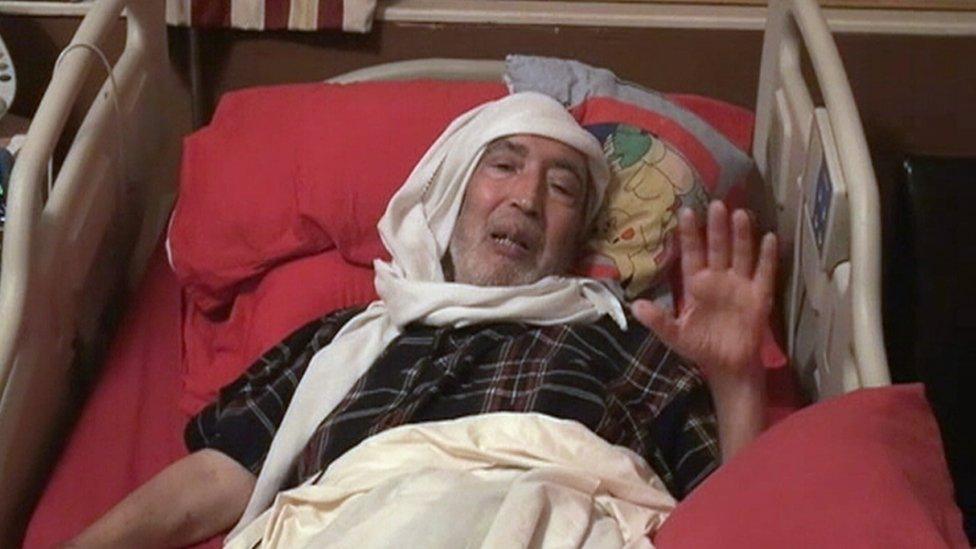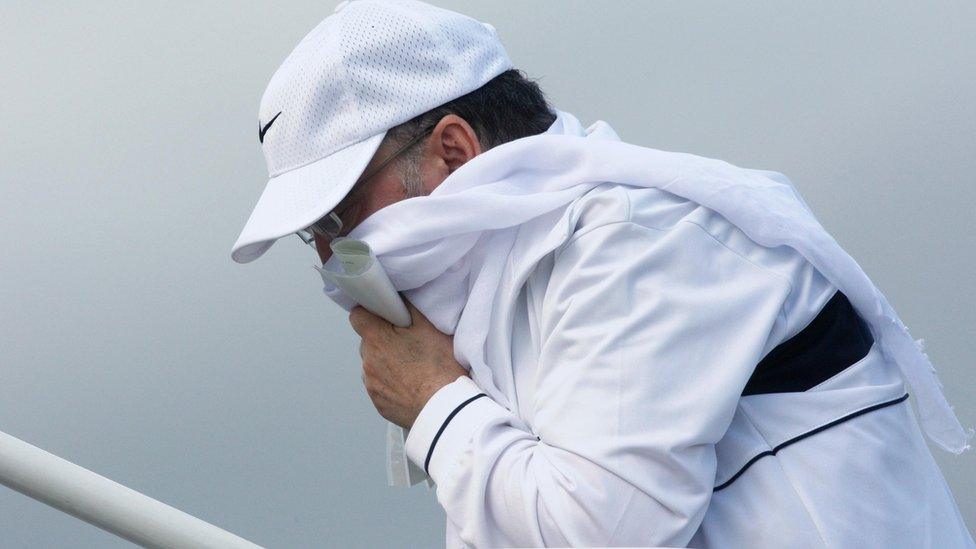Lockerbie bomber's conviction to be reviewed
- Published

Abdelbaset al-Megrahi is the only person to have been convicted of the 1988 bombing
A review of Abdelbaset al-Megrahi's conviction for the Lockerbie bombing is to be carried out by the Scottish Criminal Cases Review Commission.
The commission said it would examine the case to decide whether it would be appropriate to refer the matter for a fresh appeal.
Megrahi was jailed for 27 years in 2001 for the 1988 bombing of Pan Am flight 103 which killed 270 people.
He died in 2012 after being released on compassionate grounds in 2009.
Megrahi lost an appeal against his conviction in 2002, with the SCCRC recommending in 2007 that he should be granted a second appeal.
He dropped the second attempt to overturn his conviction in 2009, ahead of his return to Libya. He continued to protest his innocence until his death.

Megrahi was permitted to return to Libya on compassionate grounds after he was diagnosed with terminal cancer.
SCCRC chief executive Gerard Sinclair said the commission believed Megrahi abandoned his appeal as he believed that would allow him to return to Libya.
"In any application where an applicant has previously chosen to abandon an appeal against conviction the commission will, at the first stage of its process, look carefully at the reasons why the appeal was abandoned and consider whether it is in the interests of justice to allow a further review of the conviction," he said.
"The commission has now investigated this particular matter and interviewed the key personnel who were involved in the process at the time the previous appeal was abandoned in 2009.
"The commission has also sought access to the relevant materials and has recovered the vast majority of these, including the defence papers which were not provided during its previous review.
"Having considered all the available evidence the commission believes that Mr Megrahi, in abandoning his appeal, did so as he held a genuine and reasonable belief that such a course of action would result in him being able to return home to Libya, at a time when he was suffering from terminal cancer.
"On that basis, the commission has decided that it is in the interests of justice to accept the current application for a full review of his conviction."

Analysis by BBC Scotland home affairs correspondent Reevel Alderson
In December it will be 30 years since the bombing, Britain's worst terrorist outrage. After a trial in the Netherlands Megrahi was the only man to be convicted - but following a four-year investigation by the SCCRC, he began a second appeal which he abandoned in 2009. Why he did this has always been a matter for conjecture.
Many people point to the "Deal in the Desert" between Tony Blair and the Libyan leader Colonel Gadaffi, external as forming part of the pressure put on the Scottish government. Its Justice Secretary,
Kenny MacAskill visited Megrahi in Greenock Prison shortly before the appeal was dropped, and then came the surprise announcement that Megrahi was to be freed from prison on compassionate grounds, because of his terminal prostate cancer.
Now the application by Megrahi's family for a review of the case has been accepted, the SCCRC will take several months to sift through the evidence before it, including the original six grounds of appeal.
These include doubts over a witness who identified Megrahi as the bomber, and crucial evidence of the fragment of bomb timer recovered from the ground. If the commission agrees there might have been a miscarriage of justice, the case will return yet again to the court of appeal.

The Pan Am flight from London to New York exploded 31,000 feet over Lockerbie, 38 minutes after take-off from London on 21 December 1988.
The 259 people on board the Boeing 747 were killed, along with 11 people on the ground.
Megrahi was found guilty of 270 counts of murder in 2001, after a historic trial under Scots law at a special court in the Netherlands.
He is the only person to have been found guilty of Britain's worst act of terrorism.

Megrahi continued to protest his innocence until his death in Libya in 2012.
His family made an application to the SCCRC to have his conviction overturned last July.
Their solicitor Aamer Anwar told BBC Scotland they had endured "a long journey in the pursuit for truth and justice".
He added: "When Mr Megrahi abandoned his appeal it simply didn't make sense. He had maintained his innocence until his dying breath, so nobody could understand why all of sudden he would drop it.
"There have always been allegations that the UK government applied pressure to him and others, including the Libyan government, over the appeal. That is a matter that will be addressed at a later stage.
"But the commission has accepted there was a genuine and reasonable belief by Mr Megrahi that unless he dropped his appeal then he would simply die in prison in Scotland."
He said the family's application to the SCCRC was supported by Jim Swire, who lost his 23-year-old daughter Flora in the bombing; the Rev John F Mosey, whose 19-year-old daughter Helga died; and "many other British relatives of passengers who died on board Pan Am Flight 103".
- Published23 April 2017
